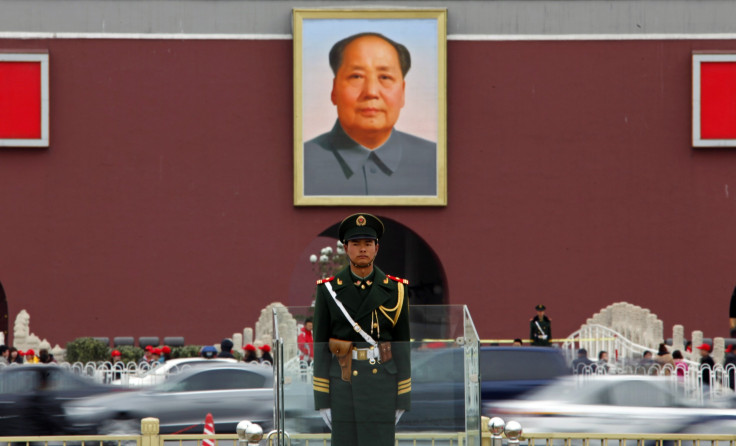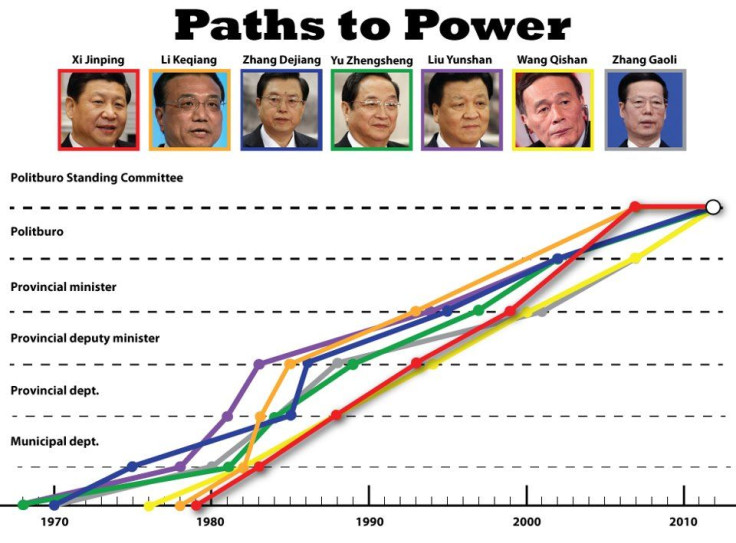China's Politburo Standing Committee And Their Paths To Power [INFOGRAPHIC]


Western politicians may have ups and downs in their careers, facing various obstacles like campaigning, raising funds, and another concept foreign to Chinese politicians: elections.
China’s top brass, however, deal with a different path to the top, one that may take longer but appears far steadier. The seven men who make up its Communist Party Politburo Standing Committee, an exclusive group that sits at the top of the country's hierarchy, took 38 years, on average, to get there and followed a pretty linear path, as illustrated by the curves in the above graph.
Contrast that with the political career of U.S presidents Barack Obama (11 years in public office before being elected to the White House); George W. Bush (five years); and Bill Clinton (13 years) -- none of them spent more than one-third of the time in office it takes a Chinese politician to reach the top.
For the most part, as previously described here, and translated in the above image, climbing the ranks of the Party is pretty formulaic; if you pay your dues at lower level positions and excel, promotion to high office becomes more of a formality. Yet, the seven men at the top still displayed exceptional characteristics.
China’s current president, Xi Jinping, had the fastest ascent to power, going from the political bottom rung to leading one the world’s second-biggest economy in 28 years -- but his rise, while fast, is pretty steady, as the curve shows. Xi’s major contribution to creating the Special Economic Zones and economic liberalization is what propelled him to top-level politics. Xi’s military background, serving the minister of Defense early on, also made him a standout nominee for the presidency.
China’s Vice President, Li Keqiang, also experienced a relatively quick rise, but rose much faster early in his career. Li rose from a municipal leadership position, to a provincial level position, to a provincial deputy minister position, in just four years, becoming the youngest provincial governor at the age of 43, when he was appointed to lead Henan. This jump took China’s president twice the time to achieve. Many attribute Li’s quick rise to power to efforts he made leading an economic development project in Henan, transforming poor areas in the province into profitable, investment-attractive cities.
In addition, most of the standing committee members have held positions in the Chinese Communist Youth League, considered one of the best ways to land on a fast-track in Chinese politics and has a reputation for cultivating top-level caliber leaders. Li Keqiang, Liu Yunshan, Zhang Dejiang and Li Yuanchao were all part of the Youth League at some point in their careers.
© Copyright IBTimes 2024. All rights reserved.






















